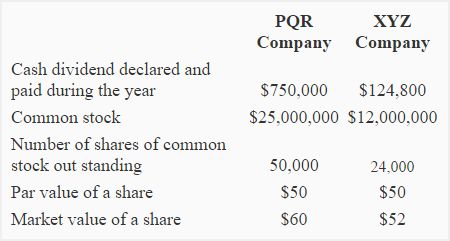
Accounting managers are responsible for overseeing the accounting department of a company. They ensure that financial statements are accurate and that all financial transactions are recorded correctly. The primary objective of an audit is to provide an opinion on the financial statements prepared by management. Auditors must obtain sufficient evidence to support their opinion, which includes examining documents and records, making inquiries of management and third parties, and performing analytical procedures. Auditors may also provide recommendations for improving internal controls and financial reporting processes.
What Is an Example of Financial Accounting?
Gen AI is a new technology, and organizations are still early in the journey of pursuing its opportunities and scaling it across functions. So it’s little surprise that only a small subset of respondents (46 out of 876) report that a meaningful share of their organizations’ EBIT can be attributed to their deployment of gen AI. These, after all, are the early movers, who already attribute more than 10 percent of their organizations’ EBIT to their use of gen AI. The AI-related practices at these organizations can offer guidance to those looking to create value from gen AI adoption at their own organizations. Interest in generative AI has also brightened the spotlight on a broader set of AI capabilities.
What is Financial Accounting?

In addition to management using financial accounting to gain information on operations, the following groups use financial accounting reporting. Management accounting is about collecting data, analyzing it and then compiling it into financial reports that people in leadership positions can use to make better business decisions. Cost accounting is a kind of managerial accounting dealing with the cost structure of the business. That’s why it makes sense to hire a good financial accountant to track, record and report financial transactions and create financial statements for your company. There are a number of types of accounting, serving a wide range of functions from tax preparation and financial statement preparation to catching white-collar criminals.
Identification of Transaction

Private firms also need to prepare financial reports to understand the financial resources of their firm. Proper financial accounting ensures that the payments due to the company are received on time. A management accountant https://www.accountingcoaching.online/lease-accounting-for-escalating-rent-payments-or/ tracks the business profits regularly to ensure that revenue flow into their bank accounts is not interrupted. New regulations require significant volumes of data to be collected, stored, transformed and reported.
What Is the Difference Between an Accountant and a CPA?
Financial accounting is an essential business function that enables professionals to understand their financial inflow and outflow. At the same time, Finaloop has an opportunity to bring on more users because of another shift in tech. E-commerce rollups, funded with https://www.accountingcoaching.online/ hundreds of millions of dollars, once promised smaller e-commerce better economies of scale if they sold up to them. This is the same highly fragmented market that Finaloop wants an opportunity to consolidate, as many of those rollups have struggled and disappeared.
Managerial Accounting
- When seeking out systems to store, track and analyze ESG data, no one provider yet has a true end-to-end solution.
- Classification means statement setting out for a period where all the similar transactions relating to a person, a thing, expense, or any other subject are groped together under appropriate heads of accounts.
- If volume of sales of the products is high and the number of transactions of the business is very high, it is impossible to keep all these transactions in the mind of a businessman.
- By establishing a system of accountability, you’ll help to nip any potential for insider fraud in the bud.
- Additional benefits include greater price certainty and boosted efficiency for all accountants, who can directly tie their work to the price they charge.
- Although privately held companies are not required to abide by GAAP, publicly traded companies must file GAAP-compliant financial statements to be listed on a stock exchange.
One of the greatest challenges facing companies is a fundamental question – who is responsible for determining the applicability of sustainability-related rules and regulations for the organization? Compliance teams are equipped to flag relevant rules but may lack context to determine if and how the company needs to change sustainability reporting. Sustainability teams can be great partners with compliance to address this landmark shift in reporting. Analysis and Interpretation The financial information or data as recorded in the books of an account must further be analyzed and interpreted so to draw useful conclusions. Thus, analysis of accounting information will help the management to assess in the performance of the business operations and forming future plans also. The business organization maintains only cash book and personal accounts of debtors and creditors.
The main job of accounting is to write down transactions in the journal as soon as they happen. To accountants, the two most important characteristics of useful information are relevance and reliability. Information is relevant to the extent that it can potentially alter a decision. Relevant information helps improve predictions of future events, confirms the outcome of a previous prediction, and should be available before a decision is made. Reliable information is verifiable, representationally faithful, and neutral.
Cost accountants analyze these expenses to provide better cost management solutions. Management accounting helps make future projections and minimize risk by using pro forma financial statements, which use financial assumptions to measure take-home point and track financial information internally. The management accounting group examines the financial and operational results of a business, looking for opportunities to enhance the results and financial position of the entity.
Each transaction recorded in the accounts should have evidence to support it, for example, in the form of receipts, cash memos, or invoices. Most new owners start with one or two broad categories, like “sales” and “services.” While some types of income are easy and cheap to generate, others require considerable effort, time, and expense. It may make sense to create separate line items in your chart of accounts for different types of income.
Accountants can be held liable under two different types of law—common law and statutory law. Common law liability includes negligence, fraud, and breach of contract, while statutory law includes any state or federal securities laws. Accountants work with companies, governments, and non-profits, or set up private practices. Transparency is how we protect the integrity of our work and keep empowering investors to achieve their goals and dreams. And we have unwavering standards for how we keep that integrity intact, from our research and data to our policies on content and your personal data. Agile work practices could lead to more diverse workplaces, as well as allowing businesses to find better recruits in different locations.
It provides a clear picture of the financial health of your organization and its performance, which can serve as a catalyst for resource management and strategic growth. Some accounting software is considered better for small businesses such as QuickBooks, Quicken, FreshBooks, Xero, SlickPie, or Sage 50. Larger companies often have much more complex solutions to integrate with their specific reporting needs. This analysis is performed by an external or an internal person by considering the entire business operations.
These multinational standards, which are issued by the International Accounting Standards Board (IASB), differ from U.S. IFRS, for example, is a little stricter about the ways you can calculate the costs of inventory, but we’re not going to dwell unnecessarily on such fine distinctions. Bear in mind, however, that, according to most experts, a single set of worldwide standards will eventually emerge to govern the accounting practices of both U.S. and non-U.S. The financial accounting group records accounting transactions and converts the resulting information into financial statements. Its primary responsibility is to generate financial statements and the related disclosures that fairly reflect the financial results and condition of the organization. Its primary beneficiary is outsiders, such as investors, creditors, and lenders.
